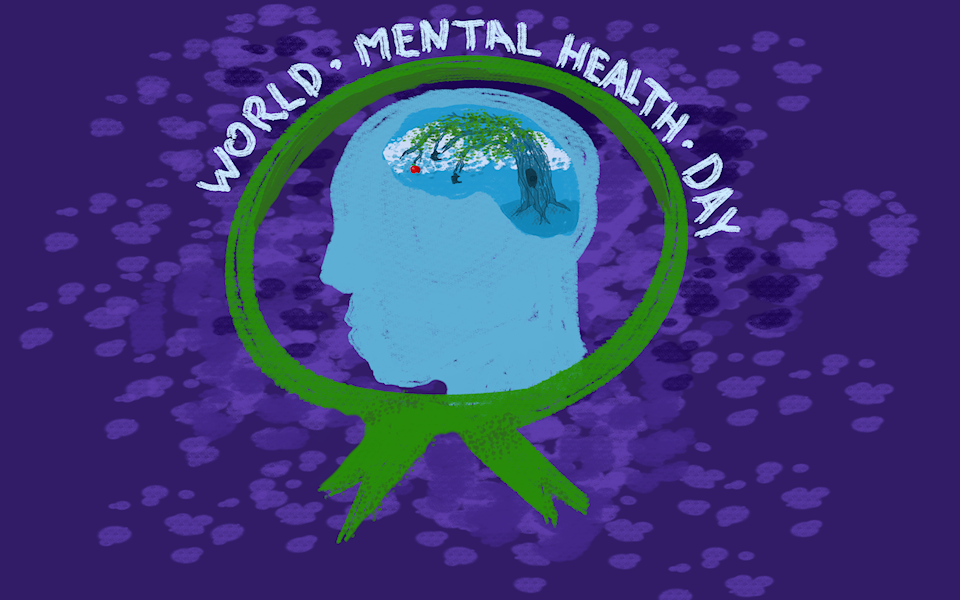Having worked in the field for 10 years, Denis Lim always had a passion for helping young people who can’t help themselves.
As a Humber Polytechnic student who graduated in 2016 from the Addictions and Mental Health program, Lim now works for non-profits and outreach and drop-in centres. He also teaches the same program he graduated from in Humber.
Lim acknowledges that while young adolescents continue to battle against mental challenges, society should shift its focus away from using the term mental illness.
“And when people say I have a mental illness and say I'm sick like there's something wrong with me, there's nothing wrong with you, we're all human, we're all anxious,” Lim said.
While World Mental Health Day was created in 1992 to raise awareness, mental health challenges have continued to persist.
A 2019 report by Trent University suggests more than 60 per cent of Canadian post-secondary students experienced higher than normal levels of stress within the previous 12 months, with 69 per cent saying they suffered severe anxiety related to school.
The report discussed how 52 per cent of Canadian post-secondary students suffered from depression that prevented them from functioning normally, with other experts from The Higher Education Council of Ontario finding that COVID-19 exacerbated these issues.
“When you take a human being outside of their social networks, not online, but I mean, like their actual physical, social networks, somebody that checks in on them and asks them, how are you doing today, it is inevitable that they're going to start spiralling downwards because they [feel like they] have nobody,” Lim said.
“I think it should be mandatory in class to have these kinds of discussions regardless of whatever program you're in because, like, everybody's got a mind, you know, everyone's dealing with something,” he said.
Don Walin, an author who is a mental health advocate and a retired Professional Golfers Association (PGA) member who has lived with a bipolar condition for about 35 years, said mental health challenges can steal your life away in front of you without you even knowing.
“I call depression like a thief because it robs you of different things like motivation and inspiration and confidence, and it makes you procrastinate and all these other kinds of things,” Walin told Humber Et Cetera.
He said some of the mental challenges he dealt with within the workplace, where he would be fired during a “mental episode” and later refused to rehire, said because of the stigma around mental health, he felt as though he couldn’t mention it to his workplace.
“I mean, it's hard to be open and honest in the first place and to admit that you're having some kind of problems and that you may have some kind of mental health issues or whatever,” Walin said. “But because of the stigma, it makes it that much harder for people, for sure.”
Not all workplace experiences have been negative when it comes to supporting mental health struggles.
Maria Talotta, a third-year Humber student in the Esthetician and Spa Management program, said work helped her manage her mental health.
“Work helps me with my mental health actually because it takes my mind away from the stress of school,” she said. “Yes, work can be stressful, but it's a different type of stress.
“I do feel work supports me with my mental health because if I'm ever going through a mental episode, my coworkers and managers are always open to hearing me out and giving words of advice,” Talotta said.
While mental stigmas continue to evolve, stigmas for men to express themselves are still prevalent, regardless of the position they find themselves in, Lim said.
“This idea that in order to be a man, this construct of a man, you're supposed to always be strong, you're never supposed to show any kind of emotion,” he said. “And if you even dare shed a tear at something, then you're considered weak, and there are all these other vulgar terms and all vulgar names that people will call you.”
World Mental Health Day was on Oct. 10, but it's important to remember these conversations don't stop after one day, as mental health is an everyday issue.
Prime Minister Justin Trudeau said in a statement that raising awareness about the importance of mental health care involves "open and honest conversations about caring for ourselves and for others" while removing barriers preventing people from seeking help.
“Mental health matters," he said. "It always has. But for too long, seeking support for mental health struggles was stigmatized. Like something to be ashamed about. And that made people struggle even more."
In a report discussing men's mental health done by Homewood Health, about one million Canadian men suffer from major depression each year. The report found that, on average, around 4,000 Canadians take their own life each year, with three-quarters being men.
Mental health is a continuous challenge and something everyone needs to work on to maintain. Walin said it's important for that communication to feel welcomed and open.
“And that conversation, that communication is so important. It is because it so helps break down barriers and stuff that makes people more comfortable to talk to you,” he said.
Lim discovered throughout his career that it's okay for everyone to not feel ok. He wants people to be open about their struggles.
“Like, it's okay to not be okay,” Lim said. “Life is not always just about being happy.”




